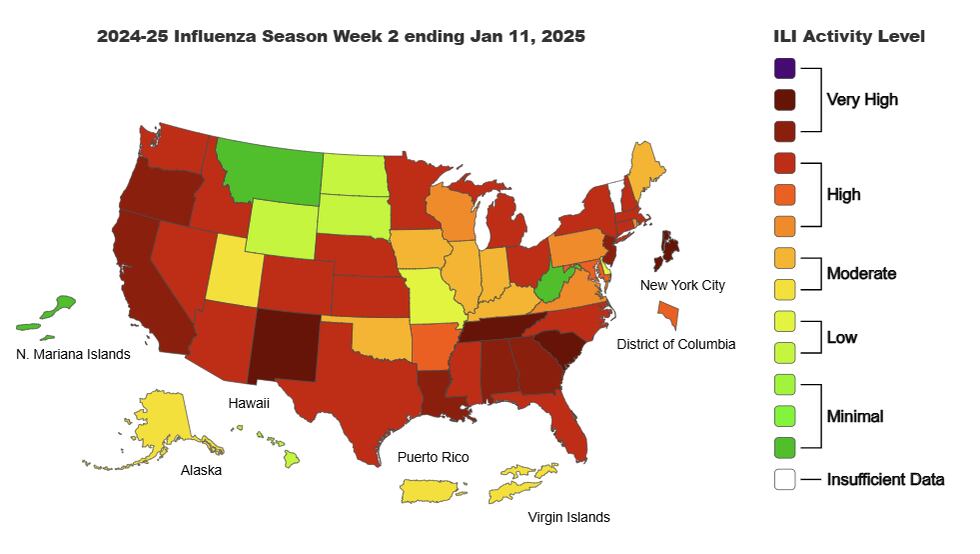S.C. child dies amid ‘very high’ flu rating for 2-state region
AUGUSTA, Ga. (WRDW/WAGT) - With the two-state seeing “very high” flu activity, a child in the Midlands region of South Carolina has died from the virus.
“We extend our condolences to the family,” said Dr. Linda Bell, South Carolina state epidemiologist.
Georgia confirms its first case of ‘zombie deer’ disease
The Georgia Department of Natural Resources has confirmed a hunter-harvested deer has tested positive for chronic wasting disease, the first case in Georgia.

She said the state has seen widespread flu activity in the past several weeks, with an increase in flu cases and hospitalizations.
“It’s critical that everyone in South Carolina get their flu shots as well as updated vaccines for other respiratory illnesses, including COVID and respiratory syncytial virus, or RSV,” she said.
Georgia this season has seen two flu deaths this season.

Right now, Georgia and South Carolina are both close to the highest possible ratings for flu levels, according to the Centers for Disease Control and Prevention.
The CDC’s scale has 13 levels, ranging from minimal to very high.
South Carolina is one notch down from the highest level, and Georgia is two notches down.
HEALTH HELP
Symptoms: Is it a cold, the flu or COVID?
- COVID symptoms may include fever or chills, cough, body aches, headaches, tiredness, shortness of breath and loss of taste or smell.
- Centers for Disease Control and Prevention experts say a sore throat, sneezing, itchy or watery eyes, and a running or stuffy nose are less common with COVID-19.
- Someone with the flu may experience all these ailments, but the loss of taste or smell is more frequent with COVID-19.
- When it comes to colds, fever or chills are not common, but you may have a cough, body aches, tiredness, be sneezing or have a runny or stuffy nose.
- In winter months, even allergies can act up, but generally that will not cause fever or chills, body aches or a loss of taste or smell.
Here are some prevention tips:
- Rigorous and frequent handwashing with soap is crucial to reduce the spread of norovirus, colds, flu and COVID-19. This is especially true after using the bathroom and eating or preparing food.
- If norovirus has found you, you’ll want to immediately clean surfaces that came in with contaminated food or bodily fluids. The CDC recommends disinfecting things with a chlorine bleach solution or one of the products listed on this Environmental Protection Agency website.
- Viruses can spread through talking, coughing and sneezing, so cover your mouth with a tissue if you feel a tickle in your throat or your nose. Then wash your hands.
- Updated COVID-19 vaccines are available, as well as annual flu shots for people 6 months and older. For those 60 and older or for people who are pregnant, you may want to get the RSV vaccine. But there is no vaccine for norovirus or the common cold.
- If you do get sick, prompt testing can help determine whether you have COVID-19 or influenza. That’s important to see if you need one of the medicines that can help prevent severe illness: Paxlovid for COVID-19 and Tamiflu for flu. Above all, if you’re symptomatic, stay at home to keep from getting others sick.
Copyright 2025 WRDW/WAGT. All rights reserved.













